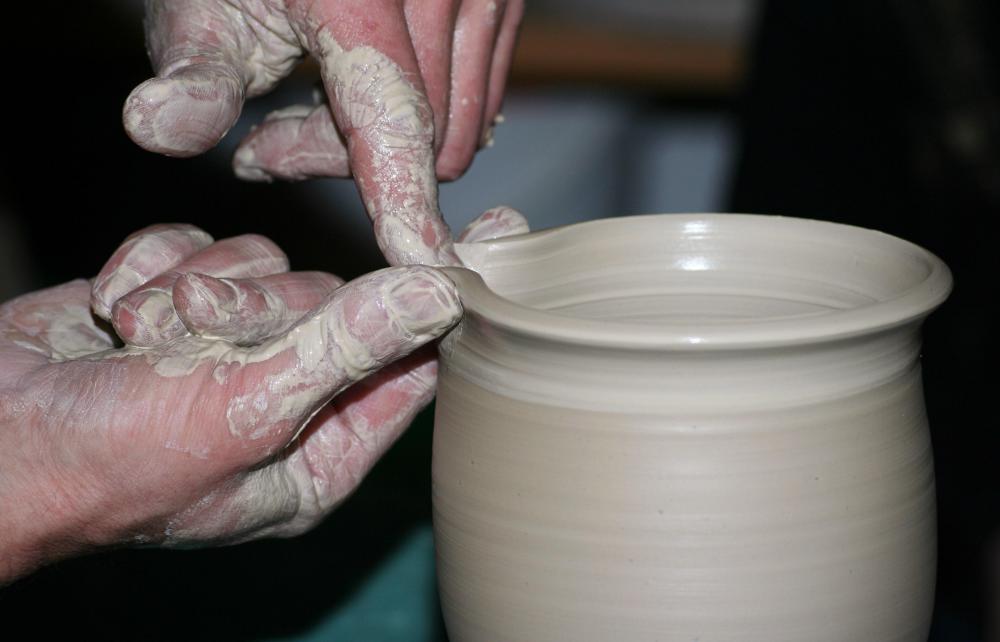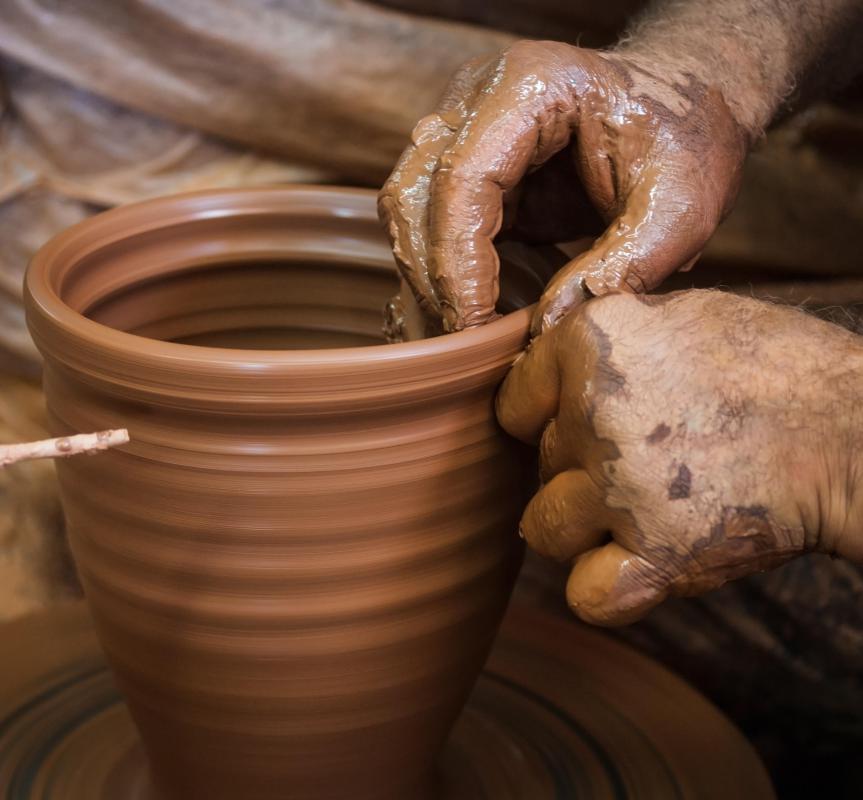At WiseGEEK, we're committed to delivering accurate, trustworthy information. Our expert-authored content is rigorously fact-checked and sourced from credible authorities. Discover how we uphold the highest standards in providing you with reliable knowledge.
How Do I Choose the Best Pottery Classes?
The best pottery classes will vary depending upon an individual's starting skill level and what he wishes to learn from the class. A workspace stocked with enough supplies and a large enough kiln for all students is one sign of a good pottery class. Pottery classes with engaging and knowledgeable teachers are generally better than classes taught by intermediate artists or general fine arts teachers. Art schools, private studios, community colleges, and adult learning centers are all good places to look for beginning, intermediate, and advanced pottery classes.
The class size and location will affect the quality of a pottery program. Some pottery classes are so packed with students that there is not enough room to work or enough time to get individual attention from the teacher. Even the best pottery teacher will have a difficult time addressing the needs of too many students at the same time. The day, time, and length of the class may play a role as well.

Most students prefer a class that allows them to sculpt or turn pieces on a wheel and learn about the art and craft of pottery at the same time. Ideal pottery classes will have enough time for both instruction and hands-on work. In intermediate and advanced pottery classes, time may be needed to learn about working a kiln and firing finished items as well.

Supplies and their cost should be considered when a pottery class is being evaluated. For beginners, pottery classes that supply everything from clay to tools allow a student to sample the craft without making a huge financial commitment. Intermediate and advanced potters may prefer a class that is more instruction based, since a pottery student at this level likely owns some tools and equipment already.

If it is possible, meeting with the pottery teacher prior to signing up for the class can help a potential student decide if the program will be a good fit. Teachers range in ability; some of the best potters are the worst teachers, while some potters with only moderate skills are very engaging and make excellent teachers. Meeting a prospective teacher in person is one way to gauge how well you will do in his class.
Reading reviews from previous students or asking previous students their opinion of the pottery program is another way to gauge the quality of a set of pottery classes. Every individual student has different needs and interests. Chatting with several program students can give a prospective class member a sense of the program.
AS FEATURED ON:
AS FEATURED ON:













Discuss this Article
Post your comments